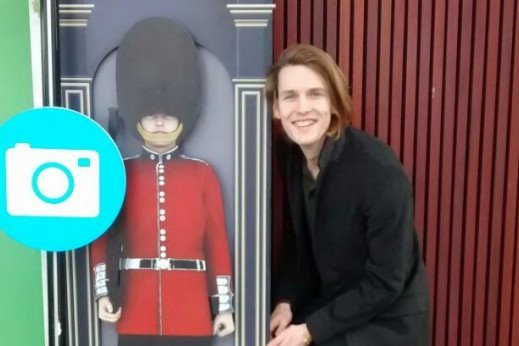Eating disorders are complicated and reasons why people turn to restricted eating are varied. Many will still judge eating disorders as narcissism and the obsession over being thin, but it was the complete opposite for me. I battled constantly with both bulimia and anorexia not because I wanted attention but because I wanted to disappear.
I can’t pinpoint the exact moment when the issues around eating began but I can put the start of the slippery slope down to two life events.
The first was having to adjust to life as a wheelchair user after being diagnosed with Ehlers Danlos Syndrome.
I will admit that having worked with people with disabilities in the past I was somewhat naive in the fact that I thought society had progressed and was in general caring towards the more vulnerable members of our community.
This couldn’t have been further from the truth in my experience.
I received e-mails and communications telling me that now I was a wheelchair user I needed to learn my limitations and realise that I could never achieve what an able-bodied person could. I heard rumours that some businesses in the area where I grew up and now can’t return to because of deep-seated anxiety were spreading around that I should no longer be trusted as a teacher because I was in a wheelchair.
I needed to find some way to disappear and become inconsequential, as if I did society maybe wouldn’t notice the disability and the eating disorder was the only way I could see to do this.
And just as I was at a crossroads, where I could have had a chance at kicking the destructive behaviour, I was dealt another blow, which meant that there was no way back.
I had become a Personal Independence Payment claimant and not just on the hit list of people in my area but the government’s too. Constant delays in processing meaning I couldn’t get the support and care I needed to help me adjust to life as a wheelchair user as promptly as I needed to. I had to battle with the assessment system, which assumes you are faking and makes you jumps through hoops to prove you need help, despite medical evidence suggesting otherwise, and the stress of finding that after 18 months of assessments and delays that they don’t think you are as ill as you say you are because you have become a master at hiding pain.
These problems with the PIP system tipped me over the precipice and left me feeling like my eating disorder was my only friend.
It allowed me to regain some control in a world where I no longer felt I had any, it allowed me to punish myself for being such a horrible person and it allowed me hide away from the world that I no longer wanted to be a part of.
At no point through this time did I ever put obsession with weight gain and being thin at the top of my agenda; to me it was just a by-product of a form of self-harm that was helping me cope with day to day life.
I found, until the later stages of the condition when friends and family started noticing my habits, it was easy to keep it a secret as well.
I was a qualified fitness instructor and so the fact I led classes, went to the gym and exercised for long of periods time meant that purging by over-exercising could be passed off as normal behaviour for me.
If I did decide to purge in other ways I had carefully constructed plans in my head and on paper for every eventuality to avoid discovery.
And as time progressed the shame of what I was doing to myself and how it was affecting my life forced me to become more and more secretive, hiding a dangerous obsession with control and self-harm, for fear that people would just think I was doing this to myself for attention.
Looking back I see now that hiding it was the worst thing I could have possibly done and the years I spent living with an eating disorder have left me with scars and health problems that now will never go away.
Perpetuating stereotypes merely serves to maintain the stigma surrounding eating disorders that forces people to hide.
It’s time to change the way we talk about eating disorders and end the ignorance surrounding them so we can work towards fighting these serious psychological illnesses.
Contributed by Gemma-Louise
Eating disorders take many different forms, and anyone can have one, regardless of gender, age, ethnicity, sexuality, class, ability, or any other aspect of identity. Yet these things can have an impact on the way someone's eating disorder develops and on their ability to seek and receive help. Have you got a story about how stereotypes and expectations around eating disorders have affected you? If so, please get in touch at comms@beateatingdisorders.org.uk.
I AN Male
25 February 2019The myths of eating disorders are stopping people getting help. These myths are making people more ill and in my case these myths destroyed my 17-year-old life.
My Sock It Tour Of London: Recovery is Always Possible
5 February 2018There I was, sitting in front of the GP, age going on 33, a decade of anorexia behind me. Was I going to tell the whole story? 'I’ve had a chest infection for six weeks and I’m scared I’m losing my hearing. Pause. Deep breath. “The real reason I’m so ill is anorexia. I’ve got anorexia.'
What happens when you start to feed your brain again?
5 May 2021You have to learn how to live again and, like with any lessons, you often have to fail to learn the best way or the right way...

